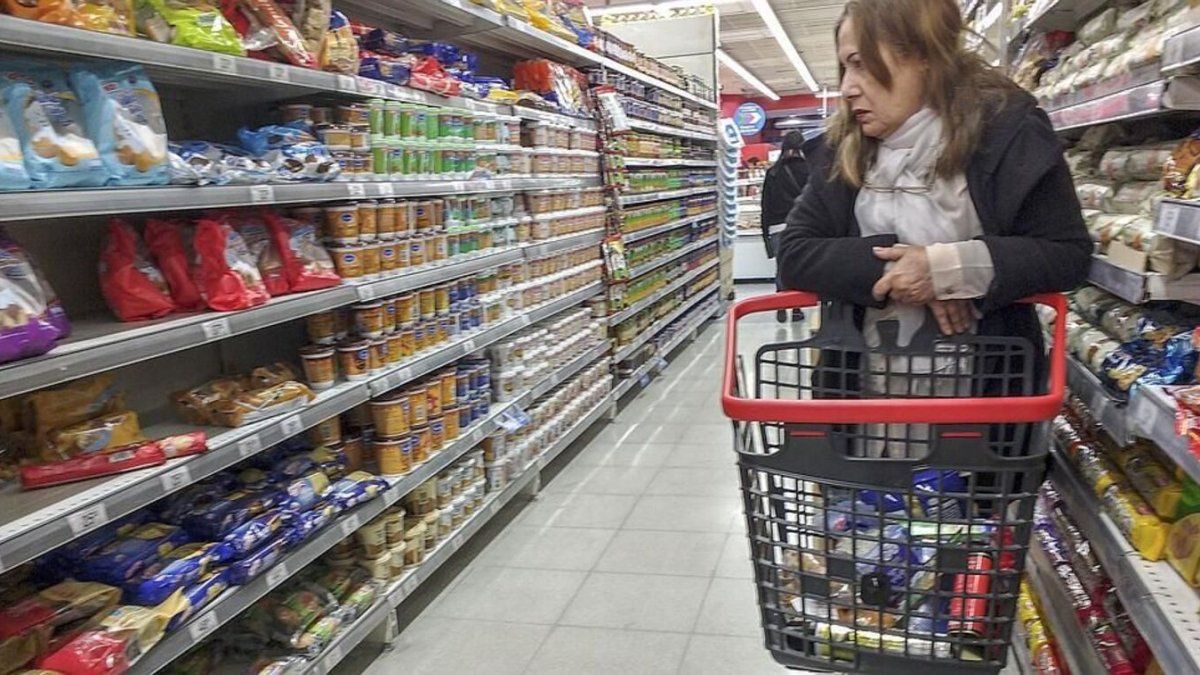The agenda of the meeting of interior ministers was longer than ever. Compromises were found, among other things, on a knife ban on trains and the naming of other safe countries of origin.
At their spring conference, the federal and state governments agreed to provide more video surveillance in trains, trams and train stations. The members of the Conference of Interior Ministers (IMK), which ended on Friday, were also able to gather behind the demand to enable the storage of IP addresses to investigate cases of sexual abuse of children and young people. So far, this has blocked the FDP at the federal level in particular, which has instead proposed the quick freeze procedure, in which data should only be backed up on a specific occasion.
At their three-day meeting, ministers also discussed:
– Migration: The federal states want the federal government to provide them with forecasts of refugee movements in addition to the current situation report on the migration situation. Agreement was also reached on “the possibility of intensifying border protection at particularly affected internal borders, depending on the situation”. The demand of some countries for temporary stationary controls at the border with Poland and Switzerland did not prevail. “We currently have the biggest problem on the Belarus-Poland route,” said Hesse’s Interior Minister Peter Beuth (CDU). He explained that the IMK had spoken out in favor of classifying Georgia, Armenia, Moldova, India, Morocco, Tunisia and Algeria as so-called safe countries of origin. However, the federal government only wants to put countries on the list that are candidates for EU membership. Federal Interior Minister Nancy Faeser (SPD) said that this is why she had made preparations to classify Moldova and Georgia as safe countries of origin.
– Knife ban: A joint paper by the interior ministers states that “special protection” is necessary on trains, since there are hardly any escape or evasive options in the event of acts of violence. Because of the national transport connections, a nationwide regulation on gun bans in trains and at train stations is necessary. This should therefore be checked by the Federal Ministry of the Interior. The Federal Ministry is also asked “if necessary to work towards a corresponding change in the conditions of carriage of Deutsche Bahn, especially with regard to knives”. Neither the train staff nor employees of private security services should be primarily responsible for the control, but that should be federal police officers and officials from the state police, said Hamburg’s Interior Senator Andy Grote.
– Blasting of ATMs: There is a sharp increase in the number of cases. Faeser explained that a large number of concrete steps had been agreed with the credit industry. These included increased video surveillance, the installation of fog systems and dyeing or gluing systems on banknotes and the reduction of cash holdings in the branches. Should it become apparent next week at another meeting with industry representatives “that the preventive measures are not being implemented sufficiently by the banks, then we will initiate legal obligations,” she said. Beuth said that the ATM blast was “bank robbery 2.0”, so the range of penalties had to be adjusted.
– Cannabis legalization: The effects of the legalization of cannabis planned by the federal government are “in the dark”, said Beuth. It is completely unclear what developments would result in crime, road safety, police checks, the black market and consumption. The Federal Ministry of the Interior must therefore commission an international comparative study in order to learn from the experiences of other countries and “draw the right conclusions for fighting crime”. Beuth referred to the example of the Netherlands. In this context, a drug mafia had become strong there, which was challenging the state.
– Last generation: There are different opinions here. Beuth criticized Federal Minister of Economics Robert Habeck (Greens) at the press conference at the end of the IMK. The CDU politician from Hesse said he was surprised that Habeck described police and public prosecutor measures that had been taken on the basis of a judicial decision as absurd. Such statements by members of the government damaged the rule of law. Habeck called the police crackdown on the last generation “completely absurd”. “It’s not the establishment of a terrorist organization. Well, I don’t think that’s right either,” he said on Wednesday. However, he doesn’t think the protests of the last generation are good either.
– Violence against homosexuals and trans people: Beuth said the interior ministers advocated better protection for victims. Obstacles that have previously prevented them from advertising must be removed. Faeser emphasized: “We have to create more awareness, more sensitivity and thus more support for those affected.” Criminal charges should be made possible via the Internet, as is already the case in Berlin, for example. The “protection of the address” of the victims is suggested in order to limit fears of renewed attacks.
Source: Stern
I have been working in the news industry for over 6 years, first as a reporter and now as an editor. I have covered politics extensively, and my work has appeared in major newspapers and online news outlets around the world. In addition to my writing, I also contribute regularly to 24 Hours World.




